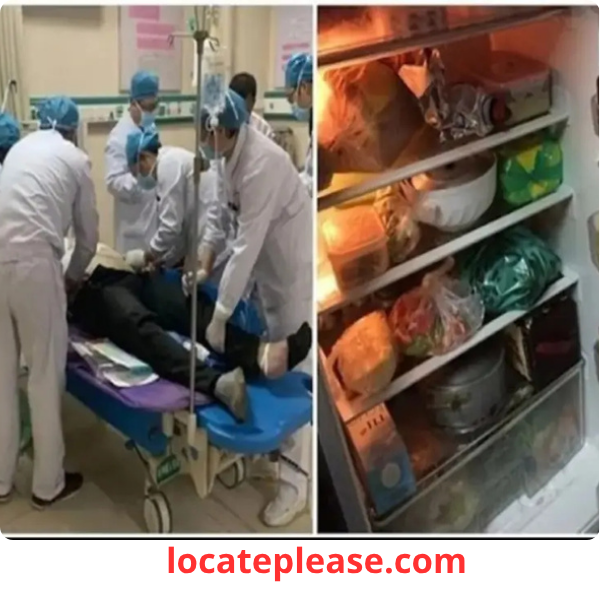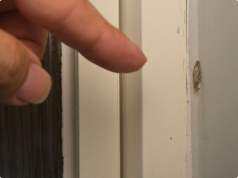In today’s fast-paced world, meal prepping and saving leftovers has become second nature.
After all, why waste food when you can just pop it in the fridge and reheat it tomorrow?
But here’s a hard truth: Not all foods are safe to store overnight — even in the refrigerator.
Some foods, when cooked and stored improperly, can develop harmful bacteria or toxic compounds that survive reheating and can lead to food poisoning, digestive issues, or even long-term health risks.
To keep you and your family safe, here are 5 foods you should never keep overnight — and the science behind why.
1. Leafy Greens (Spinach, Celery, Lettuce, Chard)
Why it’s dangerous:
Leafy greens are rich in nitrates, which are harmless when fresh. But when cooked and stored, bacteria naturally present in food can convert nitrates into nitrites — and in some cases, into nitrosamines, which are potentially carcinogenic.
Reheating doesn’t destroy these compounds — and the risk increases the longer they sit.
✅ Safer option:
Eat leafy greens fresh or lightly cooked.
If you must store them, consume within a few hours — never overnight.
2. Eggs (Especially Soft-Boiled or Scrambled)
Why it’s dangerous:
Cooked eggs are a breeding ground for bacteria like Salmonella if not stored and reheated properly. When eggs are cooled slowly or left at room temperature, bacteria multiply rapidly.
Reheating eggs — especially soft-cooked ones — can also make them rubbery and harder to digest, and may increase the risk of foodborne illness.
✅ Safer option:
Eat eggs fresh.
If you must store them, keep hard-boiled eggs in the fridge for up to 1 week — but avoid reheating.
Never leave scrambled or fried eggs out for more than 2 hours.
3. Mushrooms
Why it’s dangerous:
Mushrooms are high in proteins that break down quickly after cooking. When stored for more than a day — even in the fridge — their protein structure can change, leading to digestive upset or stomach pain when reheated.
Improper storage can also encourage bacterial growth, especially if they were not cooled quickly after cooking.
✅ Safer option:
Cook mushrooms just before eating.
If you must store them, refrigerate within 1 hour of cooking and consume within 24 hours — and reheat only once, to piping hot.
4. Rice
Why it’s dangerous:
Rice is one of the most notorious foods for food poisoning — not because of the rice itself, but due to Bacillus cereus, a heat-resistant bacteria that can survive cooking.
When rice is left at room temperature, the spores germinate and produce toxins that cause vomiting and diarrhea — and these toxins are not destroyed by reheating.
This is why “fried rice syndrome” is a real thing — often caused by reheating improperly stored rice.
✅ Safer option:
Cool rice quickly after cooking and refrigerate within 1 hour.
Reheat only once, and only if it’s been stored safely.
Never eat rice left out overnight.
5. Seafood (Fish, Shrimp, Shellfish)
Why it’s dangerous:
Seafood spoils faster than most other proteins due to its high moisture and protein content. When cooked seafood is stored and reheated, it can develop histamine and other biogenic amines, leading to scombroid poisoning — a form of food poisoning with symptoms like:
- Nausea
- Headaches
- Flushing
- Rapid heartbeat
Even refrigeration slows but doesn’t stop this process.
✅ Safer option:
Eat seafood fresh.
If you must store it, refrigerate immediately and consume within 12–24 hours.
Reheat only if necessary — and only once — to a safe internal temperature (165°F / 74°C).
General Rules for Safe Leftover Handling
✅ Cool food quickly — Within 1–2 hours of cooking.
✅ Store in shallow containers — For faster, even cooling.
✅ Label and date leftovers — Eat within 2–3 days.
✅ Reheat only once — And always to steaming hot (165°F).
✅ When in doubt, throw it out.
Final Thoughts: Leftovers Can Be Safe — But Not All Foods Are Created Equal
While refrigeration has made food storage easier, it’s not a magic shield.
Some foods are simply too delicate, too rich in protein, or too prone to bacterial growth to survive overnight — no matter how careful you are.
By avoiding these 5 high-risk foods the next day, you’re not being wasteful — you’re being smart and safe.
Because when it comes to food safety,
👉 A few hours of caution today can save you from hours of sickness tomorrow.
Eat well. Store wisely. And never risk your health for a leftover meal.






